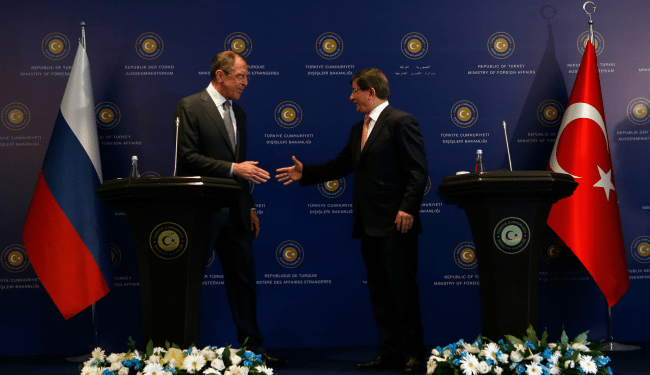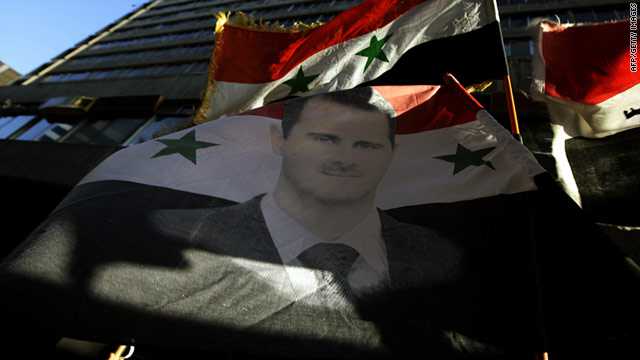
Russia’s Foreign Minister Sergei Lavrov has warned the US not to take “hasty and reckless steps” in response to the crisis in Ukraine’s Crimea region.
According to BBC, in a phone call with his US counterpart John Kerry, Mr Lavrov said imposing sanctions on Moscow would harm the US.
Pro-Russian troops have been in control of Crimea for the last week.
Earlier, a stand-off involving pro-Russian soldiers at a Ukrainian military base outside Sevastopol reportedly ended without incident.
Crimea’s parliament announced on Thursday it would hold a referendum on 16 March on whether to join Russia or remain part of Ukraine.
Russia’s parliament has promised to support Crimea if it chooses to become part of Russia.
Crimea
- Autonomous republic within Ukraine
- Transferred from Russia in 1954
- Ethnic Russians – 58.5%*
- Ethnic Ukrainians – 24.4%*
- Crimean Tatars – 12.1%*
- Source: Ukraine census 2001
- Why Crimea is so dangerous
- Crimean vote tests Western nerves
The vote has been denounced as “illegitimate” by the interim government in Kiev, which took power after President Viktor Yanukovych fled to Russia last month in the wake of mass protests against his government and deadly clashes with security forces.
In their telephone conversation on Friday, Mr Lavrov warned Mr Kerry against taking “hasty and unthought-through steps capable of causing harm to Russian-US relations”, Russia’s foreign ministry reports.
Mr Lavrov said imposing sanctions on Russia in response to its involvement in Ukraine “will inevitably have a boomerang effect against the US itself”.
The US State Department said Mr Kerry had “underscored the importance of finding a constructive way to resolve the situation diplomatically, which would address the interests of the people of Ukraine, Russia and the international community”.
“Secretary Kerry and Foreign Minister Lavrov agreed to continue to consult in the days ahead on the way forward,” said the US statement.
Journalists beaten
 Pro-Russian troops have been blockading key installations in Crimea for a number of days
Pro-Russian troops have been blockading key installations in Crimea for a number of days The majority Russian-speaking Crimea region is of political and strategic significance to both Russia and Ukraine
The majority Russian-speaking Crimea region is of political and strategic significance to both Russia and UkraineOn Friday evening, the Interfax-Ukraine news agency cited Ukraine’s defence ministry as saying a lorry had rammed open the gates of the missile defence base A2355 outside the Crimean city of Sevastopol and that about 20 “attackers” had entered, throwing stun grenades.
The Ukrainian troops barricaded themselves inside a building and their commander began negotiations before any shots were fired, it added.
The BBC’s Christian Fraser, who visited the scene, said the gates did not appear to have been driven through, and there was no sign that the base had been seized.
There were two military lorries with Russian number plates outside the gates, surrounded by irregular soldiers and a very hostile crowd of pro-Russian demonstrators, our correspondent adds.
Two journalists who attempted to take photographs were beaten badly.
Later, a Ukrainian officer told a Daily Telegraph journalist that the stand-off had ended after the “talks”, and that the Russian lorries and about 30 to 60 Russians troops had withdrawn. No shots are believed to have been fired.
‘Mortal danger’
The Pentagon estimates that 20,000 Russian troops may now be in Crimea, while the Ukrainian border guards’ commander puts the figure at 30,000.
 Ukraine’s team was represented by a lone flag-bearer at the Sochi Paralympic Winter Games opening ceremony
Ukraine’s team was represented by a lone flag-bearer at the Sochi Paralympic Winter Games opening ceremony
President Putin insists that the armed men are local “self-defence forces”, and are not under his command.
But he says Russia has the right to use force to protect Russian citizens and speakers who he says are threatened in post-uprising Ukraine.
His spokesman, Dmitry Peskov, said on Russian state television on Friday: “Can Russia stand idly by when Russians somewhere in the world – especially in neighbouring Ukraine – face mortal danger?”

The BBC’s James Reynolds reports from government buildings in Donetsk, eastern Ukraine, a focal point for tension
Calls for talks between Russia and Ukraine mediated by the West “make us smile”, he said.
The Russian foreign ministry separately accused the EU of taking an “extremely unconstructive position” by halting talks on easing visa restrictions on Russian citizens and on a new pact to replace the 1997 Russia-EU Partnership and Co-operation Agreement.
Meanwhile, Russia’s state-owned energy company, Gazprom, warned Ukraine that its gas supply might be cut off unless its $1.89bn (£1.13bn) of debts were cleared.
Gazprom halted supplies to Ukraine for almost two weeks in 2009, a move that caused shortages in Europe.
Ukrainian officials have said the state has come close to bankruptcy since protesters ousted President Yanukovych at the end of February. Officials say $35bn (£21bn) is needed to get through this year and 2015.
Mr Putin said he hoped the Paralympic Winter Games, which opened in the Black Sea resort of Sochi on Friday, would help “lower the heat of passions over Ukraine”.
The Ukrainian team was represented only by a single athlete carrying the national flag at the opening ceremony.
Valeriy Sushkevych, head of the National Paralympic Committee of Ukraine, said its athletes had debated whether to boycott the Games but had decided to compete unless the “crisis were to escalate”.



